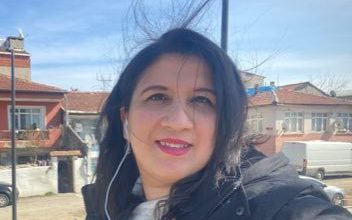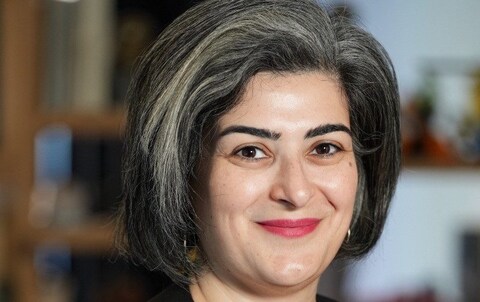BBC Arabic reporters backing Hamas on social media say Israeli …
The BBC is embroiled in an impartiality row after its journalists appeared to justify the killing of Israeli civilians by Hamas. The corporation said it was "urgently investigating" on Saturday after social media activity by several of its journalists in the Middle East appeared to celebrate the attack which left approximately 1,300 dead[1]. Reporters at BBC News Arabic endorsed comments likening Hamas, which is a designated terrorist group, to freedom fighters, as well as describing the October 7 atrocity as a "morning of hope".
One senior correspondent appeared to make fun of the Israeli relatives of a grandmother who was abducted by Hamas. Another tweeted that "Israel's prestige is crying in the corner". Separately, the output on BBC Arabic, which is funded by the licence fee, has provoked a flurry of complaints alleging bias and inaccuracy, such as for referring to towns inside Israel's internationally recognised territory, rather than contested areas of the West Bank, as "settlements" and their residents as "settlers".
Campaigners said this "whitewashed" the targeting of Jewish civilians.
A 'particular responsibility'
The BBC is obliged to achieve "due impartiality" in all its output. According to its guidelines, while its news journalists also have a "particular responsibility" to uphold the principle in their actions on social media. Responding to the allegations, the chair of the House of Commons Culture, Media and Sport Committee, Dame Caroline Dinenage said on Saturday: "Language matters and it's vital that media coverage of the heartbreaking events in Israel and Gaza are covered with the utmost sensitivity and impartiality by all journalists, especially our public service broadcasters."
It comes amid growing calls for the BBC to call Hamas terrorists, rather than a "militant group"[2]. An investigation by the Arabic department of the Committee for Accuracy in Middle East Reporting and Analysis has found social media activity by six BBC journalists and one affiliated freelancer which it alleges displays anti-Israel bias. Several in the last week questioned the designation of Israeli non-combatants as civilians, despite evidence emerging of indiscriminate slaughter of women, children and the elderly by Hamas.
Mahmoud Sheleib, a BBC News senior broadcast journalist, tweeted suggesting that young Israelis were effectively combatants. "[I see] In front of me on Al Jazeera, their so-called civilians are standing armed alongside the police and shooting because they basically don't have any civilians among the youth. This is what the ignorant often don't know.
I am in favour of fighting them with love, yes, this is the solution." Followed by a laughing emoji. The Cairo-based journalist also took part in a Twitter conversation in which he joked about a woman whose grandmother was abducted by Hamas receiving an "inheritance". Aya Hossam,who describes herself as a broadcast journalist at BBC Arabic, liked a tweet saying: "Every member of the Zionist entity served in the army at some point in his life, whether men or women, and they all had victims of explicit violations...
This term "civilians" applies to the animals and pets that live there and they are not seriously at fault." She later retweeted a message which included the phrase "the Zionist must know that he will live as a thief and a usurper". The BBC said on Saturday that Ms Hossam is a freelance who last worked for the corporation in "early October" but no longer would.
Sally Nabil, a BBC Arabic correspondent, liked a tweet describing "the Palestinian resistance taking an initiative and surprises the Israeli occupier with an operation of quality", She also liked comment to a video showing footage of jeeps loaded with bodies and kidnapped civilians. The comment said: "A proud scene photographed by me."
A tweet describing Israel as "an occupation state" was also liked by her. Meanwhile Salma Khattab, based in Cairo for BBC News, liked a tweet appearing to refer to Hamas as freedom fighters.
 Cairo-based journalist Salma Khattab
Cairo-based journalist Salma Khattab
"You cannot support freedom fighters in Ukraine as they resist Russian occupation but not in Palestine against Israeli occupation, unless you have no conscience," it said. Sanaa Khoury, the Beirut-based religious affairs correspondent for BBC Arabic, tweeted: "Israel's prestige is crying in the corner."
 Sanaa Khouri - the religious affairs reporter at BBC News
Sanaa Khouri - the religious affairs reporter at BBC News
Ms Khoury also tweeted about reports of "Baklava and candy being distributed in celebration" of the Hamas raid in Lebanon.
She then liked a comment to the tweet by someone saying: "They treated me twice in Sidon." Meanwhile Nada Abdelsamad, a Beirut-based programmes editor at BBC Arabic, retweeted a video of Israelis hiding in fear entitled: "settlers hiding inside a tin container in fear of the Palestinian resistance warriors". This came with a hashtag translated as "promise of the hereafter", a quranic reference to killing of the Jews.
Egypt All Sports, a company run by Amr Fekry, a sports correspondent and pundit at BBC Arabic, put out a statement wishing "all the best to our Palestinian brethren in their war against the occupying entity".
'We will act'
BBC spokesman said: "We are urgently investigating this matter. We take allegations of breaches of our editorial and social media guidelines with the utmost seriousness, and if and when we find breaches we will act, including taking disciplinary action." The criticism of journalists' individual conduct comes amid concern about the output on BBC Arabic, which is run by the World Service.
During a discussion this week, after one participant described the Hamas atrocities on October 7, the host intervened: "But Mohammad, this is what Israel did to Gaza." In an online article about misinformation in the Middle East, the graphic showed a slogan roughly translated as "fake news", which had the word fake and a red cross over the flag of Israel, and the word 'news' with a green tick over that of Palestine. A spokesman for Camera Arabic, which has filed numerous complaints to the corporation, said: "These revelations about BBC Arabic employees go hand in hand with the outlet's ongoing conduct during the war.
The BBC has repeatedly whitewashed the practice of targeting Jewish civilians in Israel even before the current escalation.
"They constantly claim that they apply the same editorial standards of accuracy and impartiality to their services in all languages, including those with which BBC management is not familiar and can't oversee properly, such as Arabic.
"But these lapses do not occur anywhere near as frequently in their English language content, so that can't be taken seriously."
References
- ^ the attack which left approximately 1,300 dead (www.telegraph.co.uk)
- ^ for the BBC to call Hamas terrorists, rather than a "militant group" (www.telegraph.co.uk)